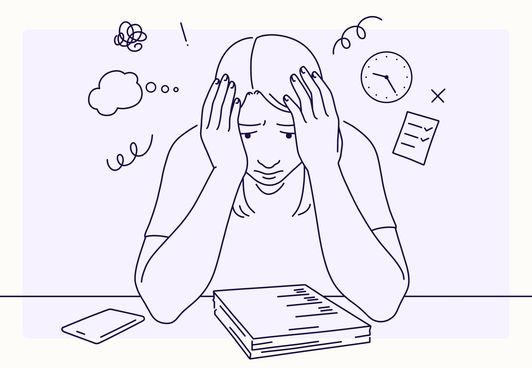ADHD

Do you have, or think you may have, ADHD? Attention Deficit Hyperactivity Disorder (ADHD) is being diagnosed more often, particularly among adults. You may have lived with it unknowingly for years. Medication is often the first line treatment offered for ADHD. While ADHD medication helps with focus and impulsivity, you may still struggle with organisational skills, time management or time blindness, prioritising, self-esteem, social skills and regulating your emotions. There are strategies that really can help you.
Despite the rising rates of diagnosis, Attention Deficit Hyperactivity Disorder is still widely misunderstood. So what is it exactly? ADHD is a neurological condition that affects both children and adults. It’s characterised by symptoms such as inattentiveness, hyperactivity, and impulsivity. The monkey mind metaphor perfectly captures the essence of ADHD: a brain that’s always on the go, leaping from one idea to the next, often leaving a trail of unfinished tasks and forgotten appointments in its wake.
The Monkey Mind
Imagine having a little monkey living in your brain. A hyperactive, curious, mischievous monkey that loves to swing from thought to thought, chattering away incessantly. That is what having ADHD (Attention Deficit Hyperactivity Disorder) can feel like — a non-stop mental circus where the ringmaster (you with ADHD) has to juggle, tame, and sometimes just hang on for dear life. Welcome to the world of the monkey mind!
Should it be Called Something Else?
Another issue with Attention Deficit Hyperactivity Disorder lies in its name, which fails to accurately describe the condition. These are the things which (nearly) everyone thinks ADHD’ers spend their day figuring out: inattention, hyperactivity and impulsivity. But the things many ADHD’ers actually struggle with are chronic overwhelm, intense emotions, hyperfocus, executive dysfunction, ADHD ‘tax’, Rejection Sensitive Dysphoria (RAD), poor sleep, planners and laundry.
ADHD is about challenges with executive function — impulsivity, hyperactivity, too many ideas, too much information to focus, sensory challenges, memory challenges, busy brains and emotional dysregulation.
Contrary to the term ‘deficit of attention’, you may feel you often experience an abundance of attention which leads your mind to wander in search of additional stimulation. Renowned psychiatrist and researcher, Professor Russell A. Barkley, PhD, suggests that ADHD is not just a deficit of attention. It is rather a delay, or deficiency, in the development of executive functioning skills.
Many adults, and girls particularly, with Attention Deficit Hyperactivity Disorder don’t display outward signs of hyperactivity either. So, the name contributes to misconceptions around the condition which can foster unconscious biases.
Negative Emotions and Rejection Sensitive Dysphoria (RSD)
ADHD and unhealthy negative emotions go together. You may recognise feelings of inadequacy, failure, rejection and letting others down which can lead to a flood of strong emotions. These might include anger, shame, anxiety, depression, guilt, and envy. ADHD and executive function disorders heighten our emotions, intensifying them.
Coaching or Therapy?
ADHD coaching is really popular and is excellent if you’re looking for help with solutions, planning and organisation — finding suitable places for important items or learning strategies to manage daily tasks more effectively. Coaching is ideal for practical guidance with everyday tasks and organisational challenges. But, if you’re grappling with emotional difficulties on a day-to-day basis, you may find therapy more helpful.
Strong emotions can definitely impact progress in various aspects of your life which may include education, jobs, and relationships. It’s really only recently that we are beginning to understand the emotional aspects of ADHD. Yet emotional disruptions are often the most impairing aspects at any age.
There isn’t a specific therapy solely for ADHD. However, there are therapists who possess a good understanding of the condition, and those who don’t. My own ADHD journey began when I started working with clients who had ADHD and I realised I had a more than a lot in common with them. This led me to being diagnosed with ADHD and suddenly all my struggles made perfect sense. So, my personal experience and professional expertise, means I fully understand ADHD, its impact on work, study, home, relationships and you.
CBT-Based Coaching Approach
My Cognitive Behavioural therapy approach, along with coaching techniques, is aimed at guiding you towards realising your fullest potential. To help you find ways to live the life that you want and will work for you.
Along with my CBT/REBT qualifications, I am a Certified ADHD Clinical Services Provider (ADHD-CCSP).